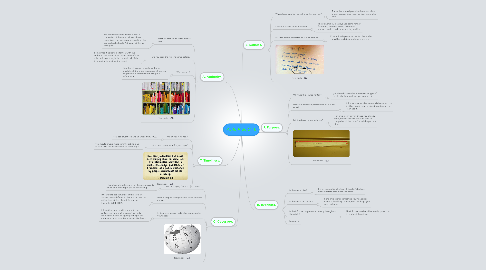
1. A. Authority.
1.1. What credentials does the author have?
1.1.1. You should always verify the author's credentials. If the author doesn't have expertise in the topic your researching, then you probably shouldn't trust what they're telling you.
1.2. Have you seen the writer's name before?
1.2.1. Sometimes it helps to be familiar with the author of the article. If you know some of their other writings, it might help you decide if the information id trust worthy or not.
1.3. Who wrote it?
1.3.1. You should always know the author or publisher. If the writer is unknown, then you might have a harder time trusting the information.
1.4. New node
2. C. Coverage.
2.1. How thoroughly is the topic covered?
2.1.1. The article should cover everything you need to know about the topic you're researching.
2.2. Does it support what you have found in other sources?
2.2.1. If you found the same face in three other articles that is different in this article, then this article is most likely false information. Example: WIKIPEDIA.
2.3. Is it comprehensive and inclusive enough for your needs?
2.3.1. If the article only provides you with two sentences of information, it isn't going to benefit you. It also isn't going to help if the information is so complex it sounds like french.
2.4. New node
3. T. Timeliness.
3.1. When was it written?
3.1.1. You don't want to have an article from 1908.
3.2. Is the date appropriate for your topic?
3.2.1. You should always make sure the article is up to date with the new discoveries of the topic.
3.3. New node
4. S. Sources.
4.1. What documentation does the author provide?
4.1.1. The author should provide a list of websites, and/or sources they received their information from.
4.2. Does the author provide extras?
4.2.1. The author should always add some form of footnotes, citations, notes, references, sources, works cited, or something familiar.
4.3. Was the article presented as fact or opinion?
4.3.1. If the article is presented as fact, he or she should have a bibliography of some sort.
4.4. New node
5. P. Purpose.
5.1. Why was this source written?
5.1.1. you should always check to see what type of article it is, informational, persuasive, etc.
5.2. Is there a balanced perspective, or is it one sided?
5.2.1. Informational articles are usually balanced, but just because it may be bias doesn't mean you can't use it.
5.3. Is it too basic or too technical?
5.3.1. If an article only covers things you already know, then its useless. If it is to hard to comprehend, then it isn't much help to you either.
5.4. New node
6. E. Evenness.
6.1. Is the article bias?
6.1.1. If it an informational article, it shouldn't be bias. It should state both sides accurately.
6.2. Is the article pro or con?
6.2.1. If the article is for something you're against, then it is less likely to recognize the things you need to know.
6.3. Is the information presented evenly throughout the article?
6.3.1. The information should be evenly spread out throughout the article.
